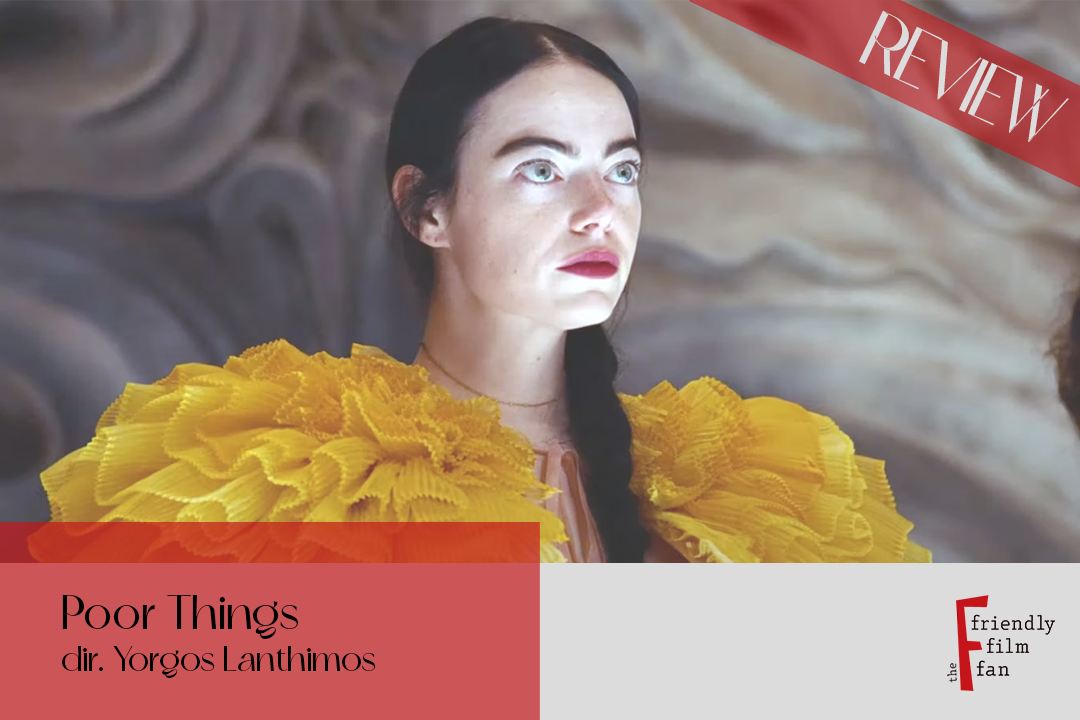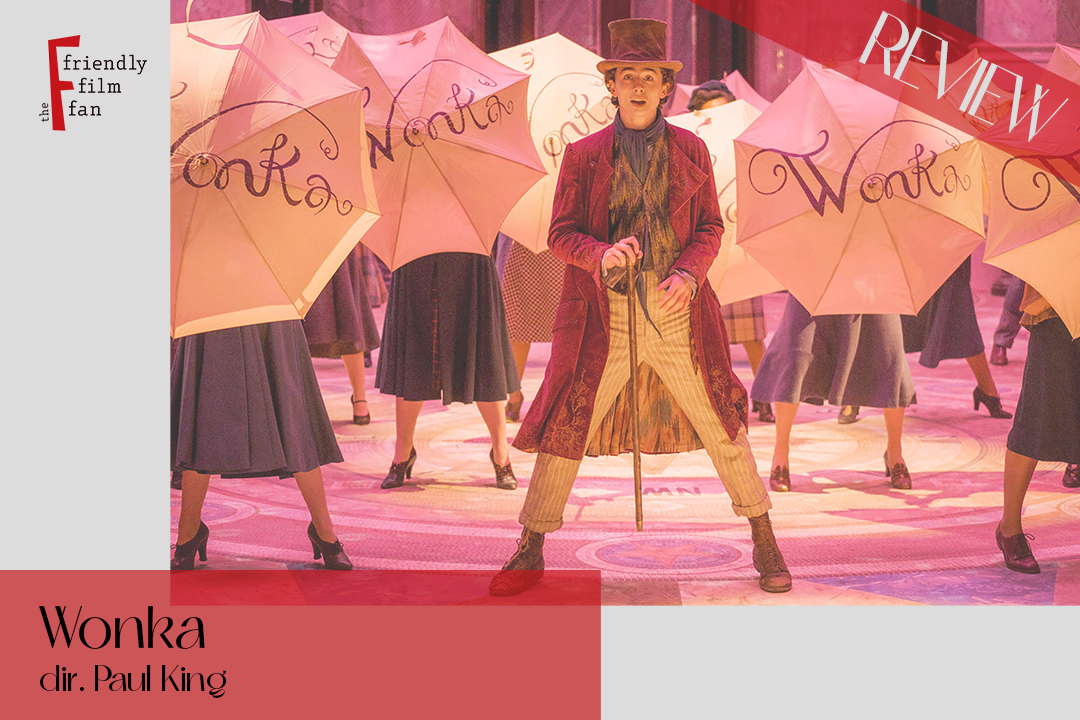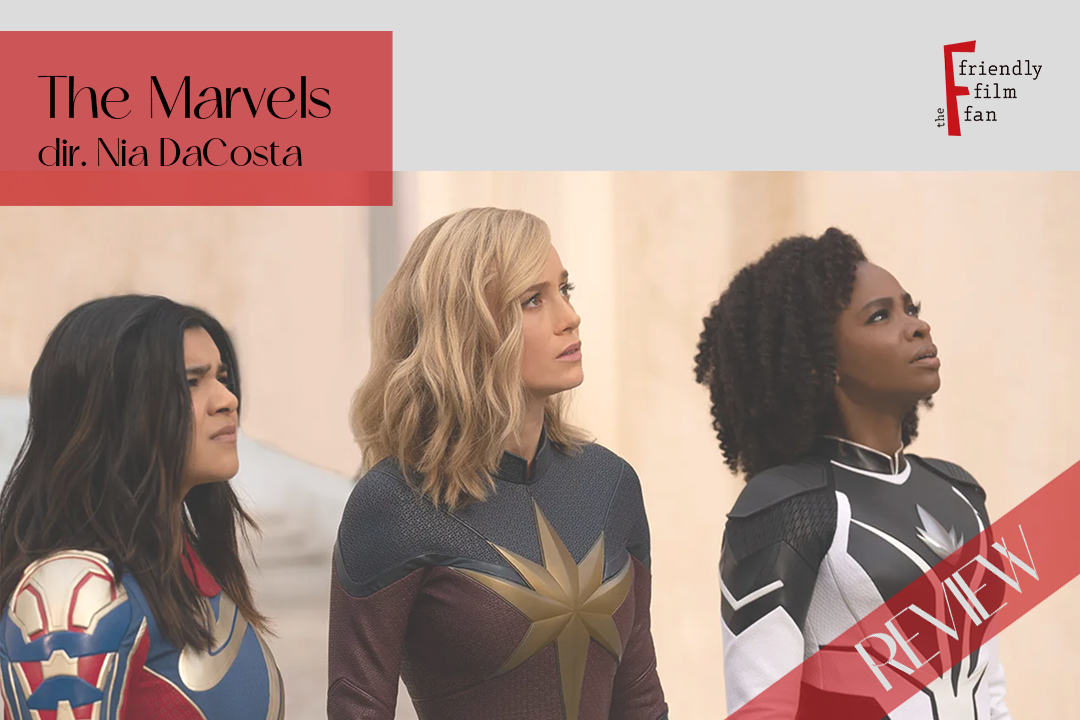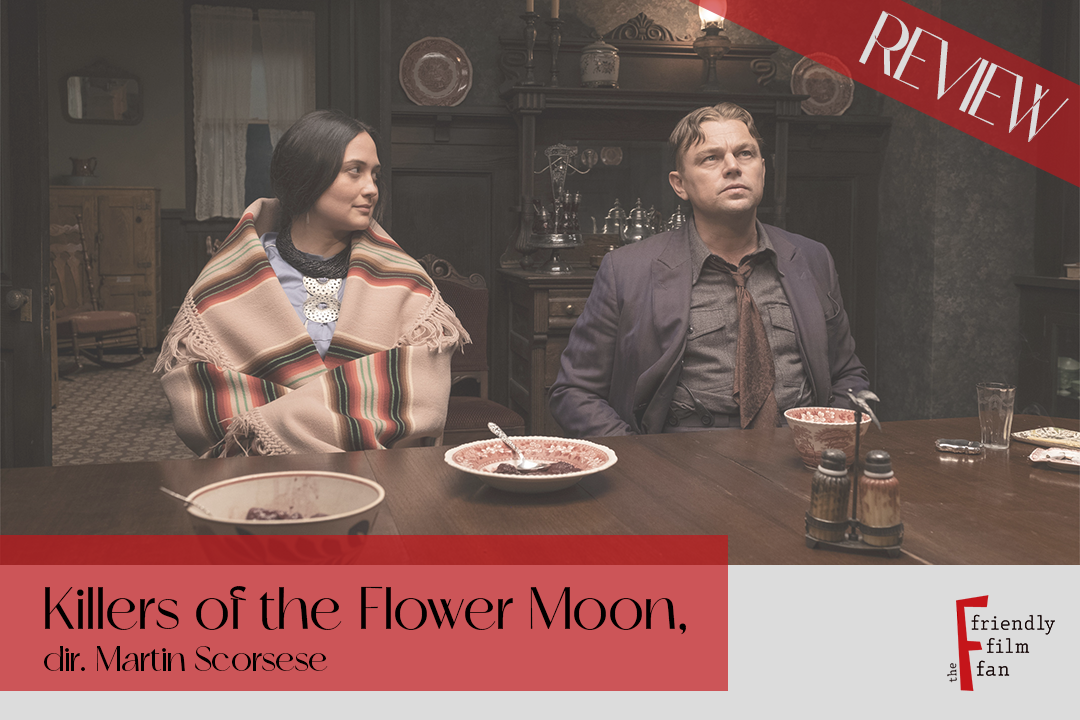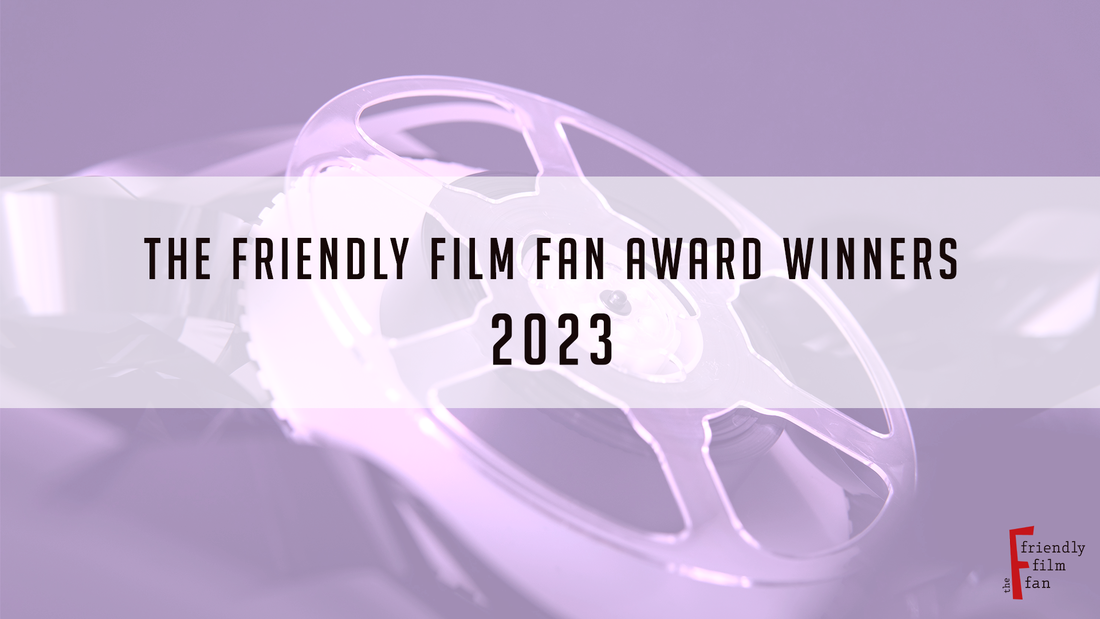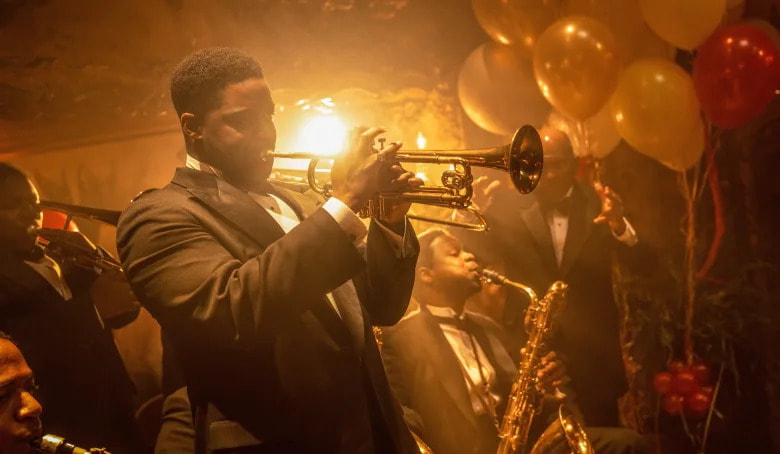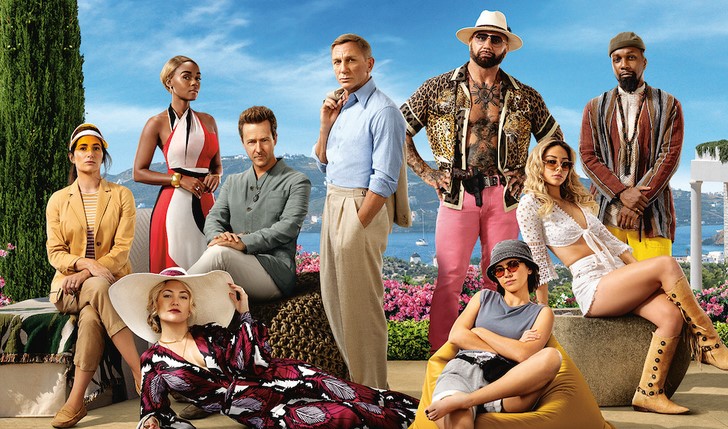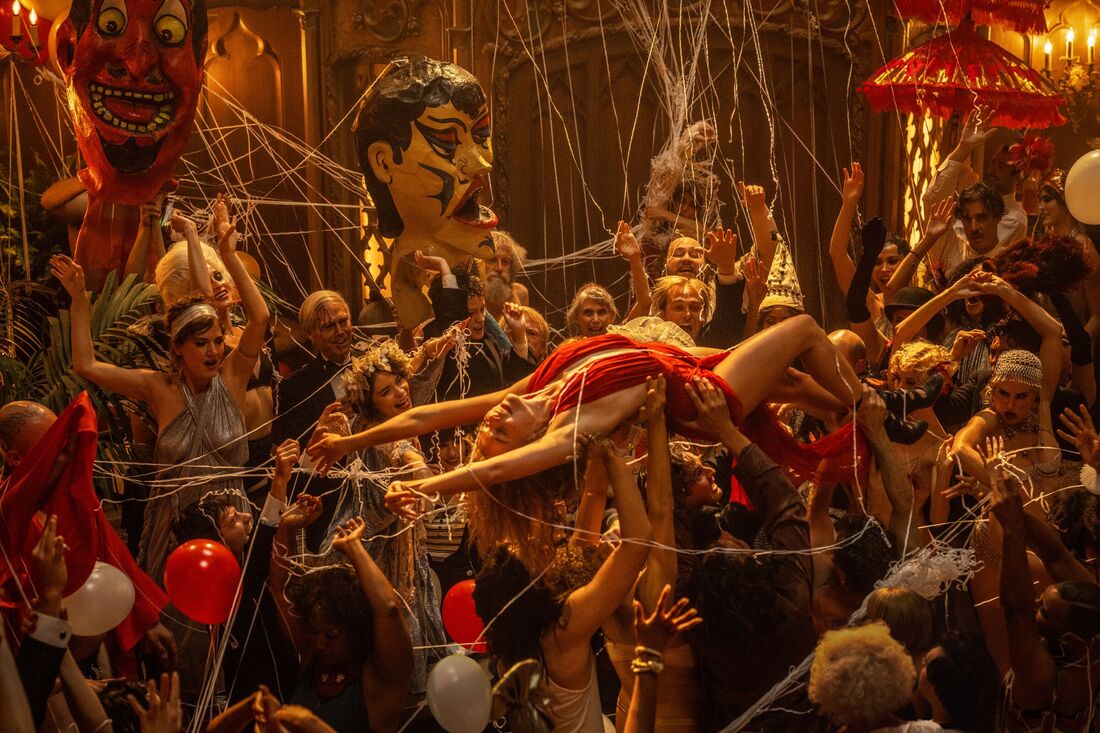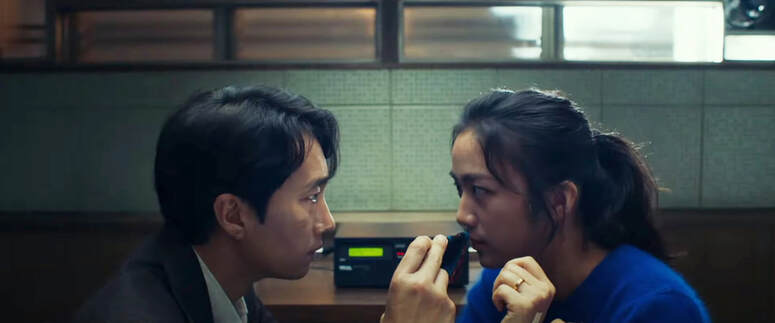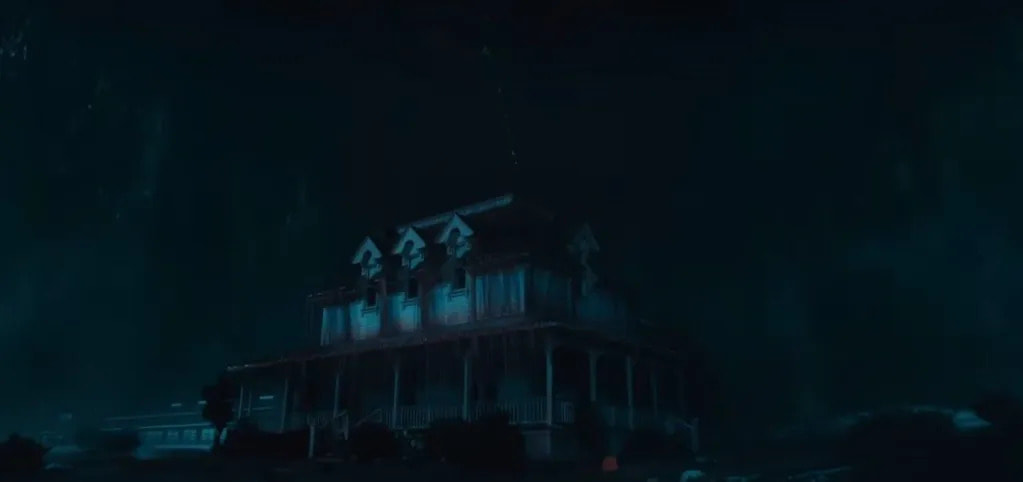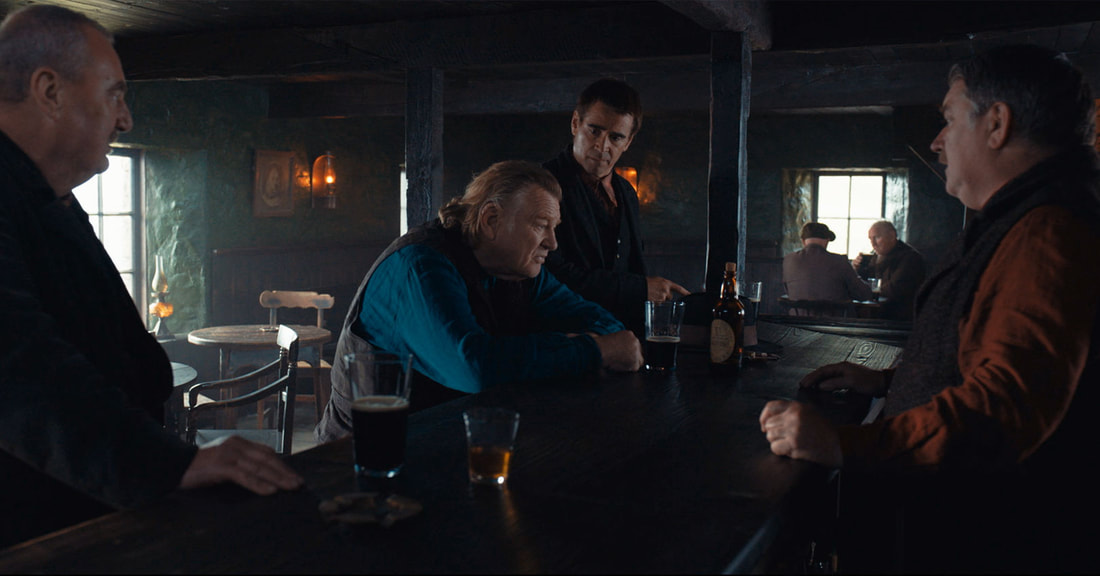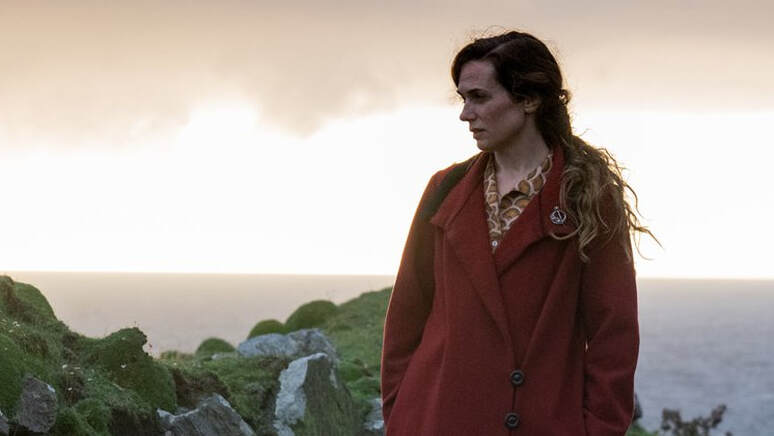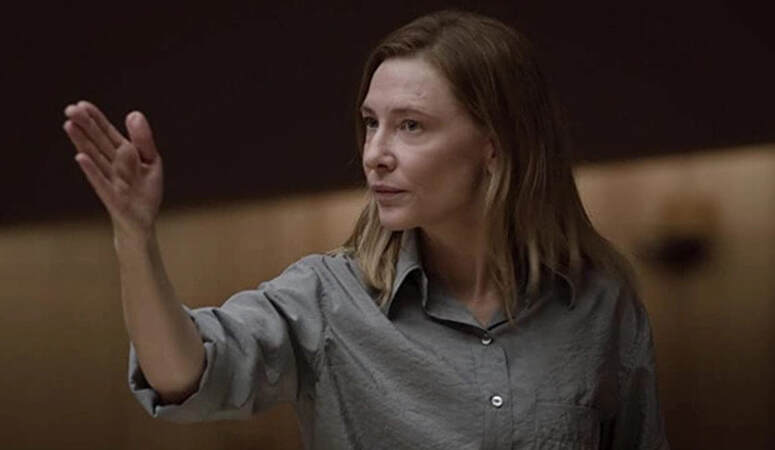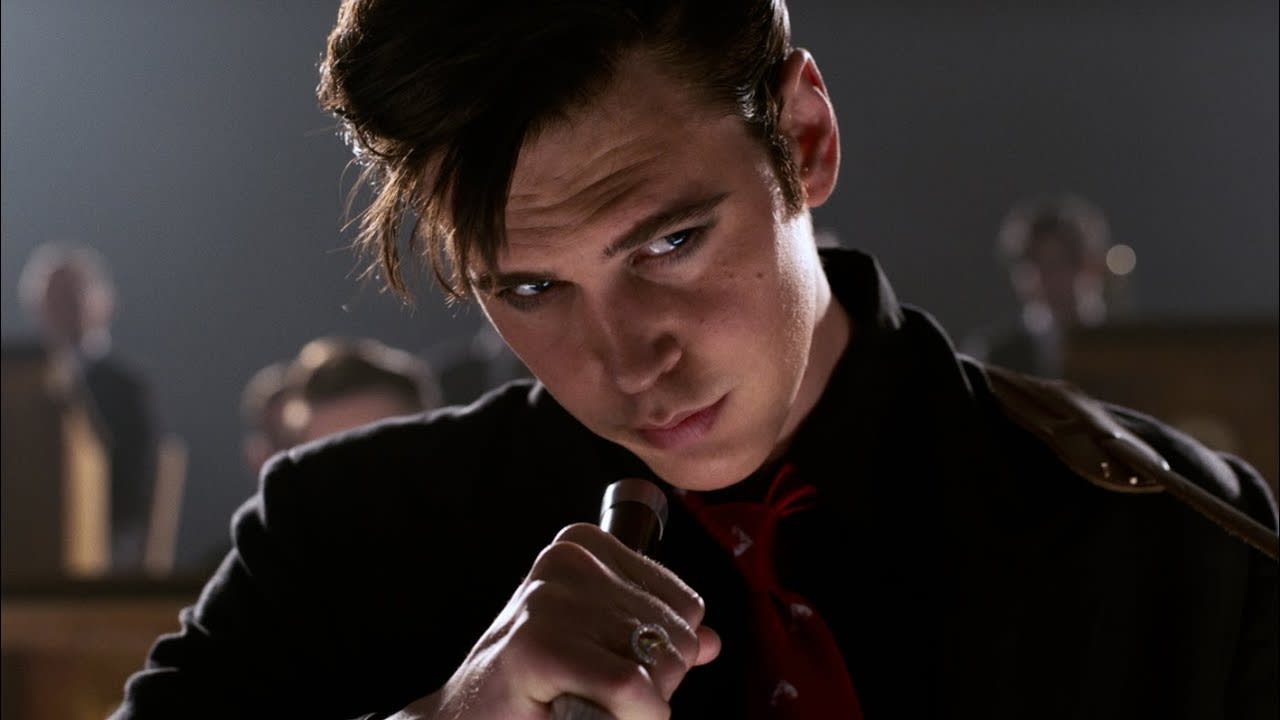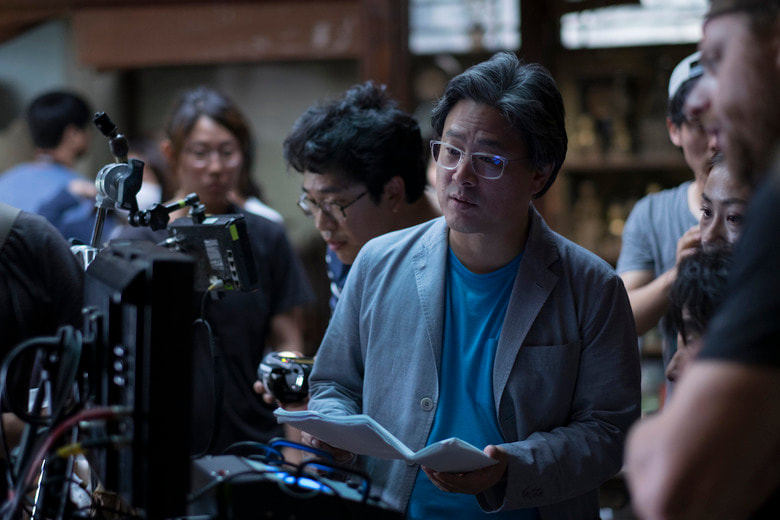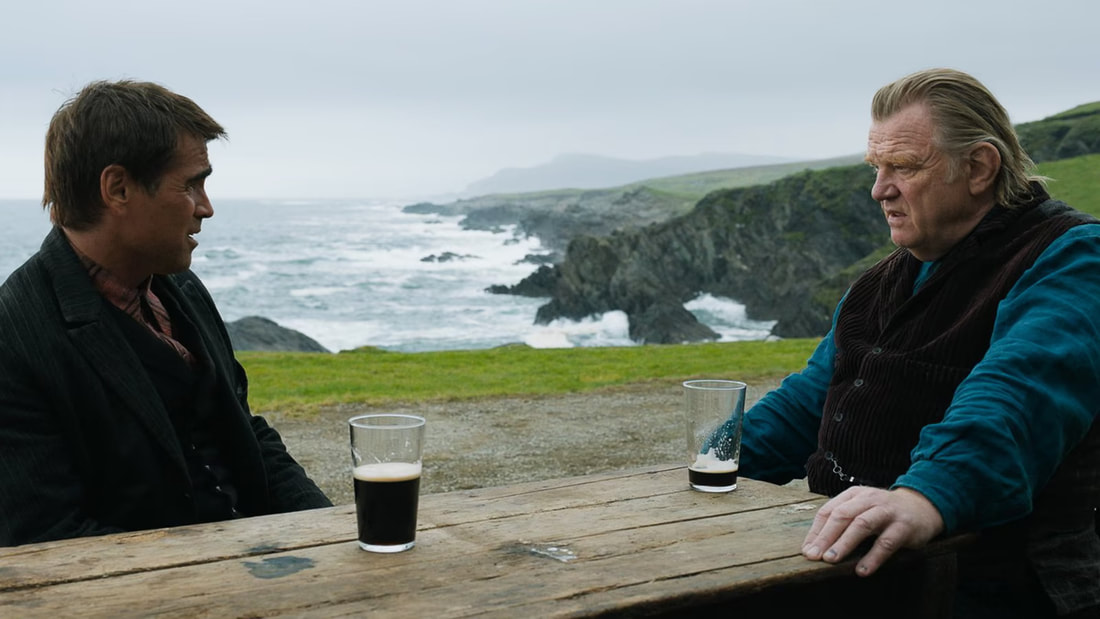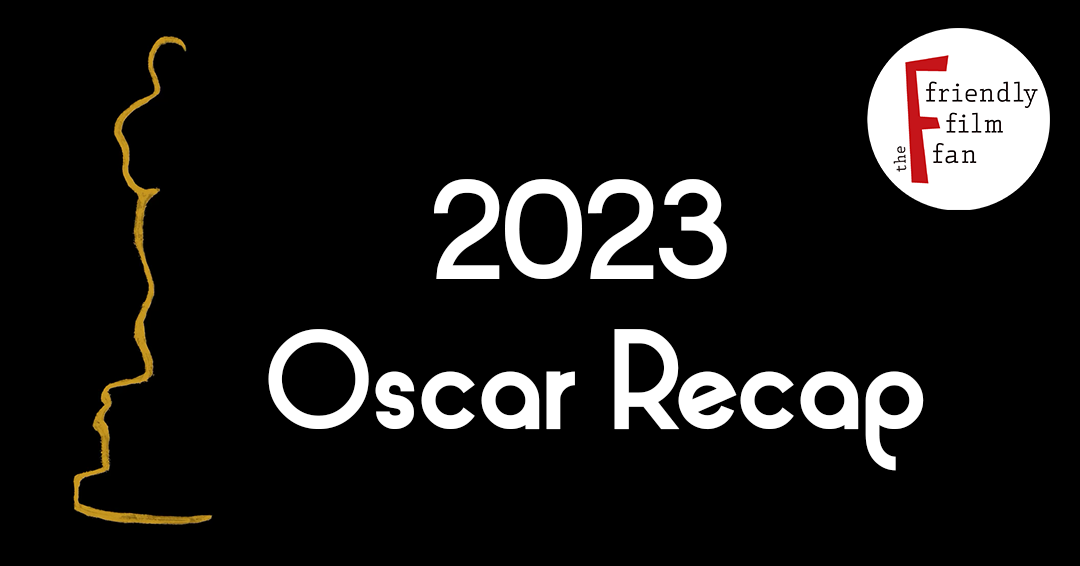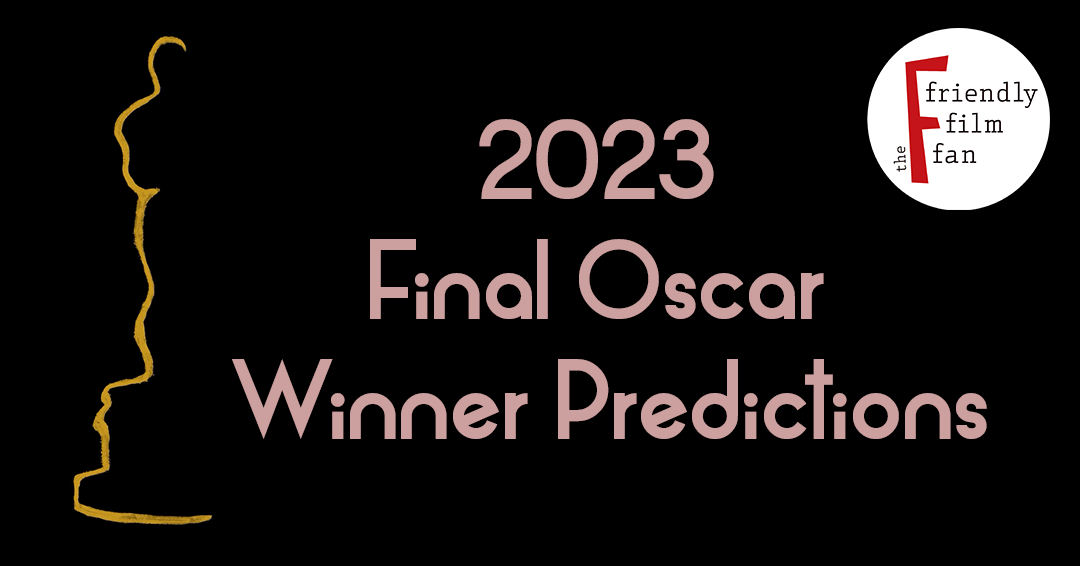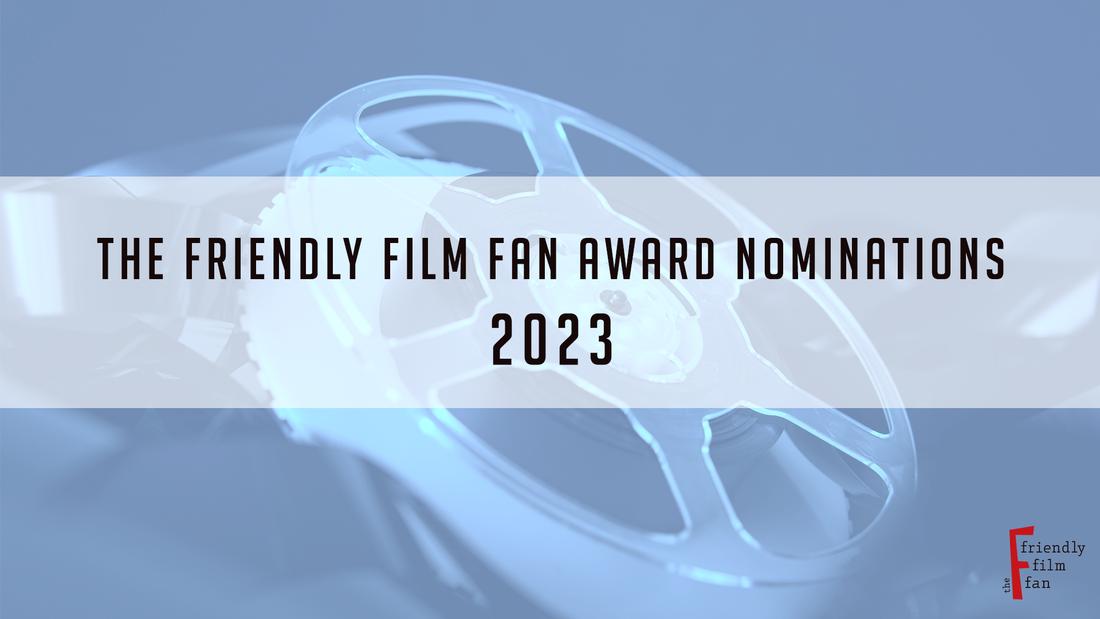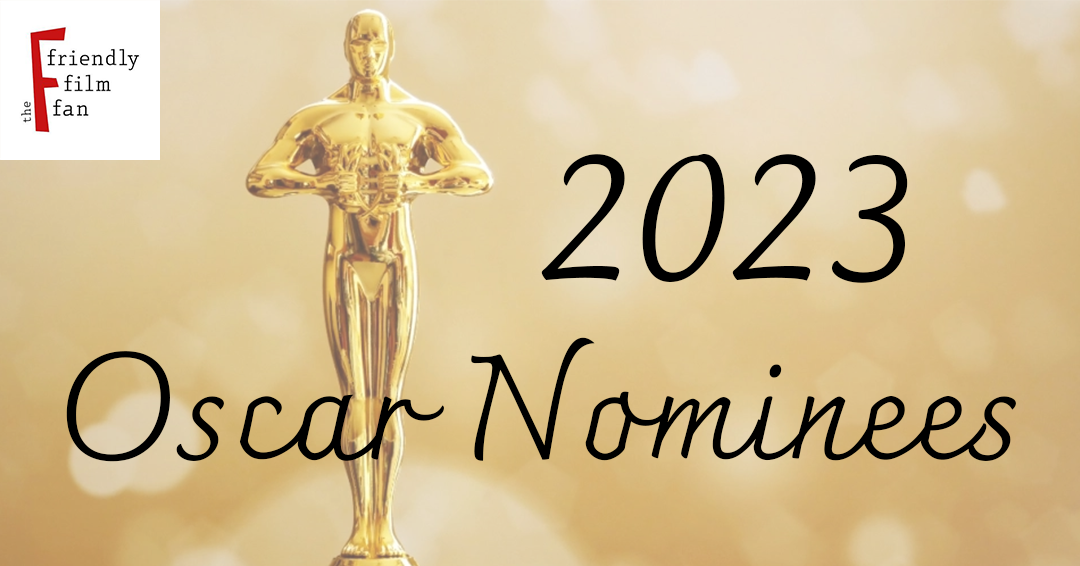|
By Jacob Thomas Jones Yorgos Lanthimos, to those familiar with his work, is one of the most striking voices in cinema. Having risen from Dogtooth all the way to Oscar winner The Favourite, his style of direction and storytelling has been one many other artists have sought not simply to emulate, but to embody. The quirks of his characters, the oft atonal yet spellbinding nature of his composers’ musical scores, the unconventionally enrapturing cinematography – all of these set Lanthimos apart, in a league entirely his own such that anyone seeking to copy his style appears at best unprepared and, at worst, a fool. Each time a film of his releases, one gets the distinct sense that no other artist in the world could pull these things off in exactly the way he does; in truth, he is the very definition of a “visionary filmmaker.”
With Poor Things, his latest release starring Emma Stone, Mark Ruffalo, Willem Dafoe, Ramy Youssef, and Kathryn Hunter, Lanthimos seeks once more to introduce his audience to a world entirely unique to the silver screen and to characters whose beings blossom there before our very eyes. Not only does he succeed in this endeavor (and then some), but there may not have been more appropriate material for such an enterprise. Being in the middle of the Poor Things book, I can say without a doubt that the source material could not be more appropriate for a Yorgos Lanthimos project, particularly wherein it concerns our main character, Bella Baxter (as played by Emma Stone). Bella is a curious creation of scientific experimentation, and as such does not behave, speak, or indeed move in the same way a normal person would in this world. As Dr. Godwin Baxter (Willem Dafoe) puts it so plainly in the film’s trailer, “her brain and her body are not quite synchronized.” Stone has always been a rare talent and has amassed an impressive body of work, but she rises to yet another level with her performance here, dare I say a career-best. She not only embodies the idea of a fearless performer, but lives Bella’s journey in every minute. The thing that’s most impressive about her work in this case is not only that she aces the off-beat movements and speech patterns of Bella in the earlier parts of the film, but that as Bella grows as a person and begins to open up to and explore the world around her, Stone’s performance changes in turn, never once falling behind where the story needs the character to be, or feeling too experienced in the early stages to have the sort of naivety the character would logically require. There’s been quite a lot of hand-wringing regarding the film’s depiction of women’s sexual liberation, or if it indeed can be called that once viewed through a feminist framework, especially considering that early naivety and its proximity to her first sexual experiences. Some have suggested that Bella’s journey is a victim of the male gaze, as exhibited by the absence of menstrual blood in the film or her nudity being near-total in several of her sexual encounters as she comes to discover the world around her, while others have argued that her control in each of these scenes and the fact that she only engages with these things on her own terms – when she wants to – supports the idea that the film is a feminist reading on women’s sexuality as a whole. While I cannot offer a definitive stance in either direction, I lean closer to the latter, though I also am not naïve enough to consider myself a foremost authority on the subject. In either case, Emma Stone’s remarkable turn stands as a testament to her power as an actress; whichever side one finds themselves on, her performance remains unimpeachably impressive. Stone isn’t the only performer turning in impressive work, however. We’ve all known Mark Ruffalo to be a talented actor, but rarely have we ever borne witness to him being this funny. Much of Poor Things’ humor is abrasive, crass, often transgressive in the way it simply shoots out of the script, and while Emma Stone certainly owns the screen and gets most of the funnier moments to herself, Ruffalo ends up getting a lot of humorous moments to play with as well. The joy of watching his work here is as much in his reactions to the way Bella behaves as in what he says in response. It’s in the way Ruffalo carries himself like a spoiled child as soon as things don’t go his way, but switches almost immediately to desperation as soon as he needs something from Bella, only to then switch back when he realizes he can’t get it the way he wants. Compared to his other works, this seems to me to be his most daring stretch to date. As to the filmmaking itself, it is a remarkable feat. What Lanthimos and company have accomplished in this respect is nothing short of astonishing (even with some light pacing issues, in my opinion), particularly wherein it concerns the way the film looks. The production and costume designs are fascinating in all their weirdness, enhanced by Robbie Ryan’s immaculate cinematography. The ultra-wide lensing in lesser hands would feel pretentious or ill-used, but with this film, Ryan clearly understands exactly when and where using it will enhance the story of every frame, never deploying it without purpose, nor holding it so tightly that it appears unnatural when released to the screen. The use of color as Bella’s world begins to grow larger is positively striking, the boldness of them and their contrasts growing more and more as they reflect the levels of nuance Bella’s mind is capable of. Of course, the original score by Jerskin Fendrix is brilliantly utilized in all the right places as well, enhancing the strange, melancholic allure of the world just as thoroughly as Bella’s wonder in traversing it, but there are only so many ways to describe the plucks of the strings and blast of organs in certain scenes before simply referring to such music as one of the best scores of the year because it feels the only way to appropriately describe its irregular beauty. Truly, the world of the film is an experience worth having all its own, even if Bella Baxter were not the one to take us through it. Poor Things will not be for everyone, and in fact, may generally turn a lot of people off to the idea of Yorgos Lanthimos altogether (if one of his previous films hasn’t already), but for movie lovers – and particularly those movie lovers who have a taste for the wonderfully strange – it will surely come as a delightfully weird treat deserving of any number of awards thrown its way. For my own part, although I have little sense of where it would rank in my personal assessment of Lanthimos’ filmography and I am unsure of just how much I like it when compared to other films I’ve seen this year, it is without a doubt among the very best 2023 has had to offer. I’m giving “Poor Things” a 9.7/10 - The Friendly Film Fan
0 Comments
Willy Wonka is back! By Jacob Thomas Jones As one hears the opening notes of Wonka’s “Pure Imagination” theme at the start of Paul King’s prequel odyssey, the lyricized feeling of trepidation sets in. Has King bitten off more than he can chew? Do we really need a prequel to one of the most beloved films of all time? Can any living person capture the exuberance, the idiosyncratic energies of Gene Wilder’s wonderful, whacky chocolatier? There have been so many curiosities as to why this film was made in the first place, what its purpose is, and how it might go about achieving that purpose, not to mention the metrics by which that success is measured. Plus, there’s the added pressure of King’s cinematic legacy; can he make something as emotionally rewarding and wonderful as his two Paddington films, whose fans (of which I count myself a devoted one) are so taken with his particular brand of storytelling? Soon, however, the initial trepidation dissipates, reforming into comfort once Timothée Chalamet’s particular version of our titular protagonist begins to interact with those around him in the film’s opening musical number, “A Hatful of Dreams.” There’s whimsy, there’s fun, there’s an acute sense of what specific brand of comedy pairs well with a story like this, and when best to utilize it, even if some jokes don’t land the same as others. Above all, King fosters a familial sense of togetherness, an understanding that this film is for everyone willing to give it a chance, that no one would be left behind for not following things too closely. There’s no rush to the finish line, nor is there a sense that the film is trying to be any more profound than it needs to be. This a movie for families in every sense of the word, and not one note or line reading betrays that tone. Inside Chalamet’s performance – as paired with the director’s vision – there are all the great things about the character of Willy Wonka: enthusiasm, ingenuity, compassion, and an emotional connection to his renowned creations (the ingenuity in particular comes into play quite a lot in this story). These are all brought to life with a new and infectious warmth the likes of which only Paul King’s direction has been able to muster in quite this way, operating outside of the medium of animation. There’s a charisma about Chalamet’s Willy Wonka that one can’t help but be swept up in, as evidenced by his first scene selling chocolate just outside the Gallery Gourmet, a crowd of onlookers taken with his energy, buying every bit into the man he says he is. Any doubt one has about Chalamet in the part is quickly gone, and there’s a feeling one gets that no other living actor could have possibly taken on this mantle and done with it what he does, which extends to the film’s musical numbers. The music itself, while not as memorable or lyrically impressive as one may hope for a musical centered around this eccentric character, informs the story for about the first half of the film, later on mostly retreating as things become more serious and our protagonist reaches the narrative climax. One gets the sense that even if a Best Original Song Oscar nomination is probably out of the cards here, a future stage adaptation is very much not. The songs are fun nonetheless, and in the moment, it does seem as though they could get stuck in one’s head with a couple of viewings of the film. Where King’s true genius lies, however, is in the side characters he puts into his films, characters with particular quirks and unexpectedly funny personality traits which inform their place in the story being told without overwhelming the moments they share together. The people Willy Wonka meets – while not entirely fully fleshed out – have their own dimensionality, their own purposes, their own fears and nostalgias. (Calah Lane as Noodle is especially notable in this department. It’s her connection with Willy that drives the film’s main line of charm.) This is as much a movie about found family as it is following one’s dreams with that family’s help, and King’s direction is assured enough to never make a false step in that particular element of the story. There are a few performances that overdo it a bit, chiefly in the villains of the film, and in some moments set in the scrub house Willy Wonka stays in while selling chocolate. But, given the target demographic here, and the quirky nature with which the story plays out, it’s far less bothersome than it otherwise would be, and the absurdism sprinkled in lends itself well to some of the film’s running gags. As for Hugh Grant’s Oompa Loompa character, he is in the film far less than one might expect given how heavily he’s features in the marketing, so if you are someone aching for Hugh Grant musical numbers, that element of the film may let you down a bit. All in all, Wonka’s strain of comfort film is sure to be a fallback for a new generation, buoyed by wonder, charm, and themes of familial warmth. Paul King ties yet another notch into his victory belt, having successfully pulled off three of these family films in a row, all of which are some of the best films of their years, and all of which are bound to have great replay value, their emotional cores tugging just enough at one’s heart that yes, you may tear up once or twice along the way. (I certainly did.) There’s no longer any doubt: Timothée Chalamet was absolutely the right choice to play this part, and though there is no definitive information on whether this is the beginning of a franchise play or simply a one-off, I would happily welcome more of his Willy Wonka to the silver screen as soon as he is ready to put the coat back on. I’m giving “Wonka” an 8/10
- The Friendly Film Fan The Friendly Film Fan Reviews the Latest in Superhero Cinema. The MCU has had a rough go of things lately; while critics’ opinions of the franchise have always ebbed and flowed, its overall reception has waned a considerable amount since the start of Phase 4 (Guardians of the Galaxy: Vol. 3 and a few of its streaming endeavors notwithstanding). Now, The Marvels arrives as the third MCU project to be released this year, and the one by which people are measuring the perceived successes or failures of the franchise as a whole, for some reason. There’s been not insignificant amounts of conversation surrounding its somewhat rocky production history, box office hopes, critic scores, and space in the wider sphere of who should get to write about it, how they should write about it, or why. In short, a lot seems to be riding on this one, mostly unfairly.
For context, it's been over four years since we last saw Carol Danvers (Brie Larson) briefly return to help the Avengers defeat Thanos, many years after she had jetted off to space at the end of her own solo film to deal with the Supreme Intelligence and set things right in the Kree/Skrull war. Since “the snap” was undone, Monica Rambeau (Teyonah Parris) has come back to find her mom has passed on in her absence (she’s also gained superpowers – see WandaVision), and we’ve been introduced to Ms. Marvel (Iman Vellani) in her own solo series. The crux of this film’s plot involves the three of these characters coming together to stop Dar-Benn (Zawe Ashton) – a vengeful Kree with a grudge against Captain Marvel – from targeting various planets across the universe which Carol Danvers had once called home. As if that isn’t enough to deal with, the three are also constantly switching places due to their light-based powers becoming entangled. What works about The Marvels may not be much, but it works well enough to keep the movie afloat for most of its noticeably short runtime. For the most part, there’s an appropriately measured sense of levity here, the three leads well-suited to each other’s energies, even if those energies can’t always match the moment they’re in due to poor writing or editing choices. While Brie Larson and Teyonah Parris are doing what they can without the dialogue to support their performance skills, the standout is unquestionably Iman Vellani as Kamala Khan – a.k.a. Ms. Marvel – whose endearing charisma powers this film through its weaker moments. It’s her that manages to keep the viewer glued to the screen whenever she and the other co-leads are together. There’s also at least one genuinely fun action sequence, right after our protagonists first find themselves switching places. The way the camera moves through this sequence practically in sync with the characters’ movements lends an energy to it that the MCU has been lacking in its last few outings (again, GotG: Vol. 3 notwithstanding). And yes, despite some issues I had with the execution, the mid-credits scene is an actually exciting tease of what’s to come, rather than a block of text or a cheeky joke. Unfortunately, what doesn’t work about The Marvels is a much longer list, even if that list doesn’t quite weigh the film down as much as one might imagine. After a short introduction to Dar-Benn at the film’s start (along with some pretty noticeable green screen), we get going with the main plot pretty much right away, but it’s all cut together in a way that makes it feel choppy or cobbled together from different pieces, rather than feeling like one moment is flowing naturally into the next, which flows into the next, and so on. It doesn’t feel so much like a story is being told as pieces of a concept and plot mechanics are being introduced, and the execution of those introductions doesn’t mesh with the jarring tone-shifts going on in almost every other scene. Even some of the more absurd ideas present in the film are fun in concept, but lack appropriate execution. Whether it’s one sequence involving a lot of cats or another where an entire planet’s language is only song, the film can’t weave them into darker surrounding scenes without it feeling jarring or out of place. There are, of course, other things that don’t work: a lot of the dialogue is pretty bad, much of it is used in place of characters showing who they are (or it comes from the wrong character entirely), the score doesn’t strike a proper balance in more dire scenes, most interpersonal conflict between characters is immediately resolved in the name of moving the plot forward rather than being explored more richly, Dar-Benn is one the MCU’s worst-rendered villains to date, and while some choices regarding the ending make sense, they don’t square with the logic of previous franchise entries or even this film’s own story. Perhaps the biggest offender, though, in this long list of things that don’t work is this pressing question: what is this movie about? The film itself doesn’t seem to have an answer. It briefly addresses the idea of interventionism and how interfering in conflicts that are not one’s own can bring about terrible consequences for those involved, but it almost immediately drops this idea to, once again, keep the plot moving forward. It also flirts with the idea that Carol would continuously try to fix things on her own despite having two people there with her because she feels responsible for the mess in front of her, but it never actually executes on that concept either. Every time the film gets close to having a theme, a message to tie it all together, it abandons the opportunity in favor of keeping the plot moving as quickly as it can, leaving the film feeling fine on the surface, but ultimately hollow. In the end, box office success or lack thereof, The Marvels would likely have a tough time sticking in the minds of moviegoers if it weren’t for the brand recognition and the iconography of its titular characters in other mediums. It’s not as if the film doesn’t work, but what does work seems as though it’s part of a separate story, tonally speaking, and while the chemistry and performances of the three leads are enough to get viewers through most of the runtime, they won’t get through it all without feeling at least a few speed bumps. I’m giving “The Marvels” a 5.8/10 - The Friendly Film Fan The iconic director returns with his first narrative feature in five years. Martin Scorsese. Over the course of the director’s long and storied career, he’s made a habit of exploring subjects with intense thematic weight, his prolific filmography ever-so-steadily setting the stage for a late-career reflection upon those very subjects. The tone of these explorations varies wildly at points – satire, black comedy, somber melodrama. Yet he often returns to the same themes, over and over again, developing his trademarks as steadily as his craft. From his earliest dives into the psyches of broken men to his escalation in interrogating broken ways of life and then broken systems, Scorsese continues to prod us with the questions of “how,” “who,” “why,” and finally, “what happens now?” But these are not questions answered by the stories he tells; they’re questions for the audience, with no clear or easy answers on the other side. Or, if there are clear or easy answers, they are meant to make us uneasy, force us to reflect. In the case of Killers of the Flower Moon, these questions seem clear-cut at the beginning; by the end, they take on an entirely new form, and their answers bear a crushing, soul-shaking weight.
The Osage. Both subject and object of the story being told. Ernest Burkhart (Leonardo DiCaprio) returns from World War I to Fairfax in Osage County, Oklahoma in order to work for his uncle Bill Hale (Robert De Niro). The Osage who live in the area have become rich after having found oil on their land, though there are certain restrictions placed upon some Osages’ wealth by “sponsors” whose job it is to deem how fit they are to spend their money and how much of it. Upon finding work as a chauffeur – one of the only jobs he can perform due to a wartime injury – Ernest begins to drive around Mollie Kyle, a member of a wealthy Osage family, and Hale takes notice of their proximity to one another, suggesting to Ernest that if he were to pursue Mollie, her estate money would come to them. Ernest and Mollie strike up a bond, marrying soon after their relationship begins. Meanwhile, the Osage begin to die off, one by one, with little or no investigation from the authorities as to what or who may have been the cause of death. Over the next three hours and twenty-six minutes, Scorsese investigates not only what came to be known as the Osage Reign of Terror, but crucially its architects, its enablers, and offers the ultimate rebuke of how stories like it are treated. From a storytelling and craft perspective, Killers of the Flower Moon is an astonishing piece, a great film at first blush which only improves the more time one spends with it. Like all of the director's great works, it almost requires a second viewing to fully appreciate everything it's doing, even if one does pick up on most of it the first time around. There are certainly times in which the film lulls, but it never truly drags, a testament both to editing legend Thelma Schoonmaker's immense and enduring talents, especially paired with Scorsese’s deft storytelling hand; not every minute feels crucial, per se, but every last one of them feels essential nonetheless. Schoonmaker’s work here in particular here could – and probably should – net her yet another Oscar win (this would make it her fourth) and it still wouldn't cover all she's contributed to cinema. That’s to say nothing of the immaculate cinematography by Rodrigo Prieto, whose camera is still when it needs to be, but sweeping in all the right places, as well as the late Robbie Robertson’s final and brilliant score. Robertson’s music is designed specifically to lull the viewer into believing that Killers may be yet another gangster crime movie from Scorsese, but soon gives way to something much more sinister: a case study of evil, racial violence, greed, and complicity. It is, without doubt, one of the best scores of the year. Beyond the technical mastery present around every frame, the film also boasts some of the year’s best work by its towering ensemble cast. (In fact, between this film and Oppenheimer, 2023’s character actor heat sheet is so chock full of great stuff in every margin, it’s difficult to decide which film has the better ensemble overall.) There are any number of great turns, from Jason Isbell to William Belleau to Scott Sheperd to Cara Jade Myers to Louis Cancelmi to Tatanka Means to Tommy Schultz to John Lithgow to Brendan Fraser. But they all rest on the shoulders of the towering three: a top-of-his-game Leonardo DiCaprio, an insidiously sinister Robert De Niro, and a revelatory Lily Gladstone. Of these three lead performances, in fact, DiCaprio comes out in third to my mind, with De Niro’s cold, calculated agent of evil proving the man still knows how to act when he’s put in the right hands. It’s Gladstone who runs away with the film, though; the Native American actress is one of the few performers I’ve ever witnessed who’s able to share scenes with DiCaprio’s alluring star persona and sap all the attention away from him with a single look. Her expressive, weary eyes carry every scene she’s in, and it’s her resilience as Mollie Burkhart that gives the film its great heart and its great tragedy. One scene in particular at the end of the film may contain the single most heartbreaking moment of performance I’ve seen in a movie this year. What truly sets Killers of the Flower Moon apart, though, beyond the technical craft and array of spectacular performances, is its startling ending, a remarkably powerful reflection upon everything we just witnessed and a confrontation of how we’ll move forward from having witnessed it. Without spoiling the specifics of how they are asked, the questions posed by the film’s finale focus on who's telling the story, critiquing how audiences often chew up and spit out true crime tales like it rather than sitting with and digesting what it can teach us, and even rebuking the story’s teller for being the one to do the telling, rather than those whose story this actually is. It’s almost as if Scorsese is asking us: “why am I the one telling this story? Why can’t we give Native filmmakers and storytellers the same chances I’ve had to tell their stories themselves?” Your milage may vary on how sincere those questions actually are coming from an 80-year-old white man who’s one of the most respected names in American filmmaking, but given how respectfully the film treats its subject matter, I’m more than willing to bet that he’s also considered those things, and that if there had been a way for an Osage filmmaker to tell this story with the same level of access, budget, and manpower Scorsese was allowed, the director would have rather they told the story. In the film’s final moments, the audience is confronted with the idea that American institutions often co-opt true crime narratives to fold them into fascinating tales for entertainment’s sake, without actually considering the toll these violent acts have taken on the communities they take place in. Scorsese has been grappling with this concept more and more as he ages, as evidenced by his reflection on early romanticizations on gangster life in The Irishman and questions of faith’s true nature in Silence. In this particular case, he interrogates how Native histories have been twisted in order to prop up those same institutions which did nothing to prevent these atrocities from happening in the first place. The true evil here, beyond the violence itself, is how normal and uninteresting everything about these horrible crimes was to those in power, those who could have actually done something about it, and how we as audiences could possibly expect entertainment from stories like this. In the end, Killers of the Flower Moon is ultimately a movie about complicity, both in times of racial violence, and in the recollection of that violence within a collective psyche. While there are no definitive answers or solutions to these confrontations, there are avenues for change, beginning with the idea that not all crime stories need be entertaining, nor should any Native stories of racial violence be turned a blind eye. And although I’m unsure how this film in particular will pair with the rest of Scorsese’s immense collection of stories, I know that there’s a reason he chose this story now, and I know that it will be sticking with me for a long, long time. I’m giving “Killers of the Flower Moon” a 9.2/10 - The Friendly Film Fan The Friendly Film Fan Reveals the Winners for the 2022 Movie Season. Hello, all, and welcome back to The Friendly Film Fan and to the 7th Annual Friendly Film Fan Awards! As most of you are no doubt familiar with the nominees by now, it’s time to select our winners for this cinematic year of 2022. There was a lot to celebrate, from the return of audiences to theaters in a very big way, to the sheer amount and skill level of art in the movie world having come to bear to the discovery of new and exciting voices in the cinematic space ready to make their mark. Having deliberated on these winners for nearly a month now, it is time to reveal who actually takes home the trophies we don’t have so they can all brag to their friends about them. Here are you winners for the 2023 Friendly Film Fan Awards! Best Sound Design:
When it came to movie sound in 2022, there simply wasn’t a more exciting, adrenaline-pumping experience than Top Gun: Maverick. From the roars of the F-18 fighter jets to the sonic booms of the Darkstar, every last bit of audio was perfectly calibrated to get our collective need for speed as sky-high as it could be. I can still hear those flares in the final mission. Best Visual Effects:
True, it may seem like a moot point to even have a Visual Effects award during a year where James Cameron released an Avatar sequel, but the work Cameron and his VFX crew are doing should not go uncelebrated, nor should the other stellar work this year in the rest of the nominee pool. Revolutionizing visual effects is just what Cameron does in his films, but the notion that there could be yet another VFX revolution at all is certainly notable. Plus, when fully CG creatures look this convincing, it’s hard not to watch in awe all the same. Best Screenplay:
I’ve waxed ad nauseum about how Todd Field’s masterful script for TÁR had any number of people convinced that its lead character was a real person, but beyond that, it’s painfully well-balanced across a plethora of themes which are seldom this nuanced. Notions of power, abuses of it, who actually has it, how it’s wielded, whether it can actually ever be taken away from those who have it – these are all present here in any variety of ways, as well as many other themes like artistry vs. pretention. Plus, “U-Haul lesbian” Cate Blanchett. Need I say more? Best Score:
Yes, the Oscars got it wrong, as we expected they would, but here at The Friendly Film Fan Awards, justice shall prevail! Justin Hurwitz’ mammoth score for Babylon is one of the decade’s finest to date, and not only in motion pictures. One only needs to here “Welcome” and “Voodoo Mama” to be absolutely convinced that Hurwitz may be one of the most important composers of the modern era in any field of music, but the fact that so many other tracks are also certified bangers is what changes that “may” to “is.” Best Character Design (Costumes + Makeup & Hairstyling):
While period pieces, films about African tribes, comic book adaptations, and even wacky multiverse-jumping fare often all have fantastic costume design work within their frames, there is something to be said for the way contemporary costumes accentuate characters’ personalities, and there was no movie better at that particular thing in 2022 than Rian Johnson’s blast of a murder mystery, Glass Onion. In every scene, each character is wearing something that speaks to who they are as people, good and bad, including Benoit Blanc himself. Turning Janelle Monáe from a formalistic tech founder into a regular Alabaman and back again in the course of one feature really is a feat of its own, but the fact that this film also managed to give us Daniel Craig’s striped swimsuit is reason enough to hand it this award. Best Production Design:
One of the only Oscars Babylon was certain to win still managed to get snatched away by All Quiet on the Western Front’s dominant technical night at the Academy Awards, but we here at The Friendly Film Fan, we recognize just how difficult it is to pull off designing an entire film’s look around an era chock full of the thing you’re making: a movie. The set of sets alone could win its own Oscar, or the party sequence as elephants crash in below the balcony or even the descent into hell in the film’s third act, but what sets Babylon apart from everything else is that the design is the story. Babylon is about excess, evil, triumph, defeat, being part of something bigger, and it doesn’t get much bigger than making the set you’re on the most essential piece of the story you’re telling. Best Film Editing:
There were moments in EEAAO where I truly felt that it had the best editing I’d seen all year. Then the same thing happened later with TÁR. Aftersun and TGM are made in the edit bay; you can’t tell those stories properly without the correct editor in the chair. Yet none of them – in my view at least – were able to pull off the astounding feat of editing in Park Chan-wook’s masterful Decision to Leave, weaving characters in and out of rooms at breakneck speed, changing from scene to scene in such creative fashion, match-cutting to some of the most heartbreaking shots of 2022 (mountains and seas, anyone?). To say that the editing in Decision to Leave is an achievement is as much of an understatement as one can make, but without doubt, it was the editing achievement of 2022. Best Cinematography:
The closest race at this year’s Friendly Film Fan Awards by far, The Batman and Nope were both neck and neck for a win in this category, a category so stacked in fact that there were at least three other films that could have also landed a nomination beyond the five chosen. However, if one is just edging out the other here, Hoyte van Hoytema’s stunning work on Jordan Peele’s Nope ultimately pulls through the stronger of both. Both of these films have excellent visual cohesion, incredible nighttime photography, and some of the year’s most striking single frames, like Batman walking towards an upside-down car or OJ’s run sequence; however, where The Batman tends to focus on the micro as a character piece (“what makes Batman who he is/what does being Batman mean”), Nope leans into the macro, and in a film dominated by the question of human beings’ relationship to spectacle, making the film itself a spectacle is a genius play. Best Stunt Ensemble:
There were some amazing stunt sequences in 2022. The Batmobile chase in The Batman, the fanny pack fight from EEAAO, the rescue battle from Woman King, hell there were four or five stellar sequences in RRR alone. And yet, there were not stunt sequences more impressive or entertaining to watch in the theater as those in Top Gun: Maverick. Even for the actors not flying the planes, simply being in them as the arial maneuvers happened in real time counts as stunt work; you can’t fake those reaction shots, for which the cameras had to be set in the jets before they even went up into the sky. Add onto that the fact that every single action sequence in TGM is one of the finest ever put to film, with real planes flying real people, and you have the makings of one of the most iconic stunt ensembles ever put to screen. Best Ensemble:
A film’s true power lies in its ability to captivate an audience, and the greatest tool a filmmaker has at their disposal to captivate an audience – apart from the story itself – is the cast they employ to tell that very story. Great ensembles can be chock full of performers having a great time playing fanciful characters or discussing a complex issue with nuance and grace or even simply working their asses off to bring us the best entertainment they possibly can as they push their bodies to the absolute limit. Then there are the smaller ensembles, groups of three or four exceptional storytellers bringing characters to life in order to tell a story on a more intimate or personal scale, often with one or two leads to carry the thrust of the tale being told. It is in this space that we find what were our two lead contenders in The Banshees of Inisherin and Everything Everywhere All at Once, and while the ensemble in EEAAO is an exceptional one, we’re sticking with Banshees for the win here, as there’s not one average or weaker performance among the whole bunch when compared one to one with its rival. We’ll see more of this cast later down the list, but for now, we’re just proud to name them the Best Ensemble of 2022. Best Supporting Actress:
Every one of the nominated performers in this category is a stick of dynamite in their respective films, some on the verge of explosion, some whose fuses have only just been lit. For all of Jesse Buckley’s steely resolve to Claire Foy’s righteous rage, each of the women in Women Talking could have all been nominated here to fill up the category all by themselves, but then how would we celebrate Dolly de Leon’s show-stealing third act turn in Triangle of Sadness or Stephanie Hsu’s immediate “taking over the movie” entrance as Jobu Tupaki in EEAAO? Each of these nominees is as worthy as the next and any one of them winning the Oscar would have been more than fine with us (although we have some…different feelings about the end result). For our part, however, no one quite stole our hearts and our heartbreak as thoroughly as Kerry Condon in The Banshees of Inisherin. Condon embodies one side of Banshees’ quiet tragedy more than any other, the idea that even the good people on the island, the ones trying to stop a metaphorical war from reaching its inevitable conclusion, eventually must choose to save themselves because that’s all there is left to save. It’s a note-perfect performance in a film with few – if any – false notes, and we’re proud to hand Kerry Condon the Friendly Film Fan Award for Best Supporting Actress of 2022. I’m sure the bragging rights will look spectacular next to her BAFTA. Best Supporting Actor:
As my personal favorite movie of the year, I knew I couldn’t let Everything Everywhere All at Once go home empty handed, even if it couldn’t quite stack up in some other categories like it did on Oscars night; luckily, there was no question in our minds or the Academy’s about which supporting actor performance stole the show in 2022. Ke Huy Quan came back to movies like a force of nature, bringing Kung Fu skill, a wide range of emotionality, and some of the most beautifully heartbreaking lines in cinema history roaring to life. “In another life, I would have really liked just doing laundry and taxes with you” rings as true as it does solely because of Quan’s fantastic performance, and as happy as we all were to see him win his Oscar, we’re even more overjoyed to hand him the 2022 Friendly Film Fan award for Best Supporting Actor. Welcome back, Ke! We’ve missed you, buddy. Best Actress:
Perhaps the toughest category to decide in the whole of this awards race, Best Actress may be the most stacked that this category has ever been to date, from Danielle Deadwyler’s gut-wrenching work in Till (at least the second-worst nomination snub at this year’s Oscars) to Tang Wei’s calculated heartache in Decision to Leave to Margot Robbie’s powerhouse exploration of stardom and misery in Babylon. Michelle Yeoh did take home the Oscar in that night’s closest race as well (and we are so proud of her for it!), but for us, there’s just something so undeniable about Cate Blanchett once more reaching a career high with her not simply perfect but outright transcendent performance in TÁR that we have been entirely unable to shake. Blanchett is Lydia Tár in the same way that RDJ is Iron Man, that J.K. Simmons is J. Jonah Jameson, and she joins the pantheon of abusive composer/conductors which Simmons himself occupies (Whiplash) as yet another of the most powerful performances in music movie history. One really only needs to see TÁR once to fully understand just how impressive Blanchett’s performance really is, like someone pointed a camera at her and just filmed her real job, to the point where – again – people thought Lydia Tár was a real person until looking her up. Yes, part of that is in the writing, as mention earlier, but in order to bring that writing to life, you need a performer at the top of their game throwing a perfect fastball every single pitch, and that’s exactly what Cate Blanchett does here. Congratulations Cate, here’s a Friendly Film Fan award to go next to your two Oscars. Best Actor:
Sometimes superstardom comes after years or even decades in front of the camera and sometimes it comes almost overnight; you just have to make the right move, and that’s what Austin Butler did in Elvis, a film I do not like led by a performance as powerful as any biopic turn I’ve ever seen. Sure, Butler had a stint as a Disney Channel star, but for this particular film, he so embodied the legendary musician that he’s still getting made fun of for not having dropped the vocal intonations of the icon well after filming and promo has wrapped on the film. It’s an easy performance to underrate when attempting to spread some love to the other nominees in this category, but when you do watch the performance all the way through, it’s easy to see why Butler became one of the fastest rising stars working today in a matter of months. The guy just has it, and we here at The Friendly Film Fan would like to be some of the first to recognize and reward him for what’s sure to be one of his most iconic parts. Best Director:
All of the nominees in this category turned in phenomenal work in 2022, and this almost went to Todd Field for directing one of the finest character studies of the last decade, but ultimately, there was not one director who seemed to have the most innate sense of control over his film than Park Chan-wook crafting a heartbreaking noir in Decision to Leave. Every move in Decision to Leave must be precisely calculated not only so audiences will invest in its characters and story but also so that no note in a story this twisty feels too complex for an audience to understand, even as the film’s plot remains as intricate as anything Chan-wook has made over the last ten years. It’s a quiet miracle – the bad kind Daniel Kaluuya refers to in Nope – that Decision to Leave was shut out of the Oscar nomination entirely, but here, as people of integrity, we not only have the film nominated in multiple categories, we award Park Chan-wook the Friendly Film Fan award for Best Director of the year. Best Picture:
And here we are at the award for Best Picture. It certainly has been a journey getting here, and every nominee in this category is as worthy of the next of recognition and celebration for the achievements they are. For our part, however, there was no more well-balanced, brilliantly-told, or quietly tragic film made in 2022 than Martin McDonagh’s The Banshees of Inisherin. If this were any other kind of film, the impact would be lessened – drama, dark comedy, etc. But Banshees roots itself in the tragedy of the inevitable and the all-too-easily preventable. None of this had to happen, yet all of it – like the Irish civil war the story is juxtaposed against – will inevitably lead to a worse outcome for all involved. The most innocent will suffer needlessly (as with Barry Keoghan’s character), the good will be made to save themselves alone (as with Kerry Condon), and at the end of the day, as the two men stand on the beach at the end of a long journey – or the start of one – neither will have learned their lesson, because one was too full of himself to see the damage he was doing and one was so hurt by that damage that the only thing he can now do is fight back against it. It’s a deeply acidic and feel-bad ending to a story that feels more honest than most stories allow themselves to be, and that, along with everything else it brings to the table (a stellar look, haunting score, and brilliant script to boot), is why we have named it the Best Picture of 2022. And so concludes this year’s Friendly Film Fan awards! What do you think of our winner selections? Are there any you disagree with? Anything you’re surprisingly happy to see walk with a victory? Let us know in the comments section below, and thanks for reading!
- The Friendly Film Fan The Friendly Film Fan Recounts the 95th Academy Awards Winners. Well, here we are the day after the 95th Academy Awards, and it has been a historic moment for Everything Everywhere All at Once as the night’s crowning feature, not only as the film with the most Oscar wins since 2014, securing 7 victories across 11 nominations, but also as the film with the most above-the-line Oscar wins ever and the most-awarded single film ever made across an awards season, raking in a whopping record of 165 total wins and decimating the previous record held by The Lord of the Rings: The Return of the King at 101. The success of the Daniels’ second feature with A24 is unprecedented in the modern era, and it will surely go down (at least in our book) as one of the most deserving and all-time greatest Best Picture winners of its era.
Netflix and Edward Berger’s recent adaptation of All Quiet on the Western Front enjoyed a modicum of success as well, as the film took home 4 awards, including Best International Feature, Best Cinematography, Best Original Score, and one it was not widely expected to win, Best Production Design. The Whale brought Brendan Fraser his long-awaited comeback Oscar as well as winning the Best Makeup & Hairstyling award, leaving just 3 movies total with multi-category victories, although there were some unexpected surprises and close saves in other areas. Ruth Carter was victorious once again for her Costume Design work on Black Panther: Wakanda Forever (a deserved win nonetheless) and Sarah Polley manages to pull off a sole win for Women Talking in Best Adapted Screenplay despite the dominance of All Quiet below-the-line. There were a few losses that stung, such as Babylon going winless and no less than five of the Best Picture nominees going home empty handed, including The Banshees of Inisherin, The Fabelmans, and TÁR (Elvis and Triangle of Sadness losses don’t hurt as much), but apart from that, the night went largely as expected. The ceremony itself was lively, celebratory, and apart from an In Memoriam segment which feels more and more gross the more one considers that a lot of deceased creators were reduced to a QR code in the interest of keeping the show moving (including Best Picture nominee Triangle of Sadness star Charlbi Dean), it all went off largely without a hitch. Jimmy Kimmel had some solid moments of genuine support for the film industry, as well as appropriately told and timed jokes (even the “slap” ones were mostly all un-exhausting), and while the show did run a bit long, none of it felt as if anyone didn’t want to be there. Overall, it was a successful night in many senses (we went 19 for 23 on our predicted winners), and it gives me hope that the future of the Academy is as bright as EEAAO’s star has been throughout the awards season. I’m very much looking forward to next year. A full recap of 2023’s Oscar winners is below. Best Picture: Everything Everywhere All at Once Best Director: Daniel Kwan and Daniel Scheinert, Everything Everywhere All at Once Best Actress: Michelle Yeoh, Everything Everywhere All at Once Best Actor: Brendan Fraser, The Whale Best Supporting Actress: Jamie Lee Curtis, Everything Everywhere All at Once Best Supporting Actor: Ke Huy Quan, Everything Everywhere All at Once Best Animated Feature: Guillermo Del Toro’s Pinocchio Best International Feature: All Quiet on the Western Front Best Documentary Feature: Navalny Best Cinematography: James Friend, All Quiet on the Western Front Best Film Editing: Paul Rogers, Everything Everywhere All at Once Best Production Design: Christian M. Goldbeck, All Quiet on the Western Front Best Costume Design: Ruth E. Carter, Black Panther: Wakanda Forever Best Makeup & Hairstyling: Adrien Morot, Judy Chin, and Annamarie Bradley, The Whale Best Original Score: Volker Bertelmann, All Quiet on the Western Front Best Original Song: “Naatu Naatu,” RRR Best Adapted Screenplay: Sarah Polley, Women Talking Best Original Screenplay: Daniel Kwan and Daniel Scheinert, Everything Everywhere All at Once Best Visual Effects: Avatar: The Way of Water Best Sound: Top Gun: Maverick Best Live-Action Short: An Irish Goodbye Best Animated Short: The Boy, the Mole, the Fox and the Horse Best Documentary Short: The Elephant Whisperers What were your favorite Oscar wins of the night? Any particularly stinging losses? What’s your take on the overall ceremony? Leave us your thoughts in the comments below, and thanks for keeping up with The Friendly Film Fan through 2022. Keep an eye out for our awards victors, announced on March 31! - The Friendly Film Fan The Friendly Film Fan Makes Our FINAL Predictions for What Will Win on Oscar Sunday. Well, here we finally are. After another long but largely fruitful year at the movies, the moment has arrived for the Academy of Motion Picture Arts and Sciences (AMPAS) to crown who they believe were the true champions of moviemaking in 2022, and with all the guilds and pre-cursors – including SAG, DGA, PGA, WGA, BAFTA, and Indie Spirit Awards – now out of the way, it’s also time for The Friendly Film Fan to make out predictions as to who will be taking home those golden statues. As with every year, there are plenty of films and there is an immeasurable amount of work that went unrecognized by the Academy in regards to the nominations listed in this piece, such as Park Chan-wook’s stellar direction of Decision to Leave or the fabulous lead performance in Till by Danielle Deadwyler, but that doesn’t mean they aren’t infinitely valuable, nor does it lessen the value or presence of any nomination that is given to a film here either. Simply put, there will always be snubs, surprises, unexpected surges, and deflated campaigns to talk about for as long as there are Oscars ceremonies. But let’s not waste any more time on semantics. It’s time – category by category – to give you our FINAL predictions for the 2023 Academy Award winners. BEST DOCUMENTARY SHORT:
Will Win: The Elephant Whisperers Dark Horse: Haulout Could Steal: Stranger at the Gate Should Have Been Nominated: N/A Admittedly, I haven’t gotten to see all of the Documentary Shorts this year, as the film How Do You Measure a Year? has eluded my eyes, and since Shorts TV doesn’t usually put this category into their programming for theaters during Oscar week, it’s unlikely the film will ever find them before Oscar night. That said, I have seen the other four, and The Elephant Whisperers is the most worthy candidate of those. Not enough people are paying attention to Haulout, however, which may not have the same kind of big studio backing Elephant Whisperers does, but could be every bit as engaging to Oscar voters. As long as Stranger at the Gate doesn’t win, I’ll be satisfied. BEST ANIMATED SHORT:
Will Win: Ice Merchants Dark Horse: An Ostrich Told Me the World is Fake and I Think I Believe It Could Steal: The Boy, the Mole, the Fox and the Horse Should Have Been Nominated: N/A Apple TV+’s The Boy, the Mole, the Fox and the Horse has the advantage going into the night, but this category has always been about underdogs at the Oscars, so I’m putting my chips on the gorgeously-animated Ice Merchants to take the win here. Plus, I ignored my instincts on The Windshield Wiper last year and that was the only category I got wrong, so I’ll go where they tell me to this time. That said, don’t underestimate Ostrich here, which simultaneously doubles as a cheeky meta-existentialist comedy and a demonstration of just how hard stop-motion animators work when bringing their films to life; that sounds like something that could appeal to the craftspeople in the Academy enough to surprise for a win to me. BEST LIVE-ACTION SHORT:
Will Win: An Irish Goodbye Dark Horse: Night Ride Could Steal: Le Pupille Should Have Been Nominated: N/A Of the three of these I did get to see, Le Pupille is most poised for success, having multi-time Oscar winner Alfonso Cuarón in its corner as a producer, and the sway he holds with the Academy should not be underestimated. With that in mind though, this category seems to be pointing towards a win for An Irish Goodbye, which I have not managed to see, and I’m sure it’s plenty worthy as well. As far as the three I’ve seen, Ivalu is definitely the best-looking, but thematically doesn’t really even reveal what’s up with itself until the tail end, so it doesn’t seem to quite make its point hard enough for Oscar voters to really value it beyond the cinematography. BEST SOUND:
Will Win: Top Gun: Maverick Dark Horse: Elvis Could Steal: All Quiet on the Western Front Should Have Been Nominated: Nope If you were in a movie theater at any point in 2022, odds are you saw Avatar: The Way of Water or Top Gun: Maverick, or both, and most likely went back to see the latter of them again and again. You also would have experienced the stellar sound work present in both films, but as Avatar is poised to take a cakewalk with another category, and so much of Maverick’s movie magic hinges on the audience feeling the roars of the F-18s fighter engines as they use flares to dodge radar-guided SAMs, it’s safe to say that Top Gun takes a slice of gold home here. BEST VISUAL EFFECTS:
Will Win: Avatar: The Way of Water Dark Horse: All Quiet on the Western Front Could Steal: N/A Should Have Been Nominated: Nope You don’t need me – or anyone else – to help you predict this category. Avatar walks. BEST ORIGNAL SCREENPLAY:
Will Win: Daniel Kwan and Daniel Scheinert, Everything Everywhere All at Once Dark Horse: Tony Kushner and Steven Spielberg, The Fabelmans Could Steal: Martin McDonagh, The Banshees of Inisherin Should Have Been Nominated: Charlotte Wells, Aftersun or Park Chan-wook, Decision to Leave or Jordan Peele, Nope While there are certainly plenty of other original screenplays like Aftersun or Decision to Leave that probably should have been nominated here, this is one of the most solid Original Screenplay lineups in some time, which makes picking a winner more difficult than predicting one. For a while it seemed like this win could go to Martin McDonagh’s great work on The Banshees of Inisherin, but as awards season has continued and the guilds have come and gone, another narrative has taken shape; given its prevalence in the nominations and the significant love the Academy clearly has for it, Everything Everywhere All at Once is most likely to win this category. That said, the award really should be going to Todd Field for his astounding work on TÁR. If your screenplay is so lived-in and knowledgeable that it manages to convince entire throngs of critics that your lead character must have been a real person, you should win something for it, at least in my view. BEST ADAPTED SCREENPLAY:
Will Win: Sarah Polley, Women Talking Dark Horse: Rian Johnson, Glass Onion: A Knives Out Mystery Could Steal: Edward Berger, Lesley Paterson, and Ian Stokell, All Quiet on the Western Front Should Have Been Nominated: Rebecca Lenkiewicz, She Said Adapted Screenplay may seem easy to predict considering how weak of a category it is this time around, but with All Quiet on the Western Front picking up nine nominations, it shouldn’t be underestimated as a potential upset winner in this race, even if the adaptation element of it is what everyone who’s read the book claims is the weakest of its many facets. With that in mind, of its two nominations, this is the only one that Women Talking is likely to win, and with Sarah Polley not appearing in Best Director, the Academy could be looking at this as a way to “make up” for not nominating her in that category. BEST ORIGINAL SONG:
Will Win: “Naatu Naatu,” RRR Dark Horse: “Applause,” Tell It Like a Woman Could Steal: “Lift Me Up,” Black Panther: Wakanda Forever Should Have Been Nominated/Shortlisted: “The Songcord,” Avatar: The Way of Water Original Song is a weird category. Here’s a collection of music written for movies, but only one of which is an essential piece of that film’s narrative momentum, and most of which don’t appear in the movies themselves. Remember what I said earlier about the two biggest movies of the year being Avatar and Top Gun? Well, in a manner of speaking, RRR is just as big as those two, just not financially. But pop into a screening of the Indian smash hit at any repertory theater in any major city, and you are sure to find a crowd just as into this movie as you’re likely to be, one of its key moments being the performance of “Naatu Naatu,” which is both my personal choice and my prediction for this category. There simply isn’t a better time musically to have at the movies, and it’s unlikely we’ll get a song that so takes the movie world by storm like this one has. BEST ORIGINAL SCORE:
Will Win: Volker Bertelmann, All Quiet on the Western Front Dark Horse: Son Lux, Everything Everywhere All at Once Could Steal: Justin Hurwitz, Babylon Should Have Been Nominated/Shortlisted: Michael Giacchino, The Batman Babylon is the best score of the year, hands down, and should easily be winning this category…but something tells me that All Quiet on the Western Front had just enough momentum going into the voting rounds to edge out Justin Hurwitz’ phenomenal work, and with Guillermo Del Toro’s Pinocchio and Women Talking absent the nominations in favor of a surprise inclusion for Everything Everywhere All at Once, there’s not a lot it has to compete with. The real question of this category is: how does anyone in their right mind leave Michael Giacchino’s fantastic score for The Batman off the shortlist? Unconscionable. BEST MAKEUP & HAIRSTYLING:
Will Win: Elvis Dark Horse: All Quiet on the Western Front Could Steal: The Whale Should Have Been Nominated: Everything Everywhere All at Once or The Woman King I may not have been the biggest fan of Elvis as a movie, but it does feature some phenomenal craftwork to help viewers stay engaged. The Academy loves a well-worn prosthetic, but while the one Brendan Fraser wears in The Whale might be harder to make, the ethics of fat suits in movies like it have come under heavy fire recently, and Tom Hanks’ neck is sitting right there anyway, so it’s less of a risk to give it to that film. (And it doesn’t hurt that they nailed Austin Butler’s hair looking a certain way as Elvis goes through the eras either.) BEST COSTUME DESIGN:
Will Win: Elvis Dark Horse: Black Panther: Wakanda Forever Could Steal: Elvis Should Have Been Nominated: The Woman King This is one of the trickier categories to predict, not because so many things are in contention or because there’s a tight divide between two nominees; there just hasn’t been an out-and-out frontrunner here, even if Babylon and Elvis are the two most likely to take it. For my money, Elvis is where this will go, but I could easily see myself getting that one incorrect, and it’s not one I’d be upset about. BEST PRODUCTION DESIGN:
Will Win: Babylon Dark Horse: The Fabelmans Could Steal: Elvis Should Have Been Nominated: Everything Everywhere All at Once The most-nominated movie this year missed out on Production Design, but since Hollywood loves when you can make them look like themselves, Babylon has the edge here by a decent stretch. Don’t underestimate Elvis, though. With all the craftwork in that movie being nominated, a win here could easily top off a design category win streak. BEST FILM EDITING:
Will Win: Everything Everywhere All at Once Dark Horse: TÁR Could Steal: Top Gun: Maverick Should Have Been Nominated: Decision to Leave For the past two years, it’s been true that if you win Best Sound, you win Best Film Editing. It’s also been said that the Academy loves to reward the film with the most editing in this space, rather than the best, but two years doesn’t make a habit, and the momentum behind Everything Everywhere All at Once right now indicates that Top Gun will not be landing the plane here this time around. Plus, the editing in EEAAO is key to ensuring that the audience understands what’s going on at all amongst all the noise; the story is made by the editing, whereas with Top Gun, the editing is more about making sure the whole ride flows smoothly even though its frankly underrated script is doing most of the legwork in helping us understand its intense stakes. That said, it could still win here; my instincts are just saying otherwise. BEST CINEMATOGRAPHY:
Will Win: James Friend, All Quiet on the Western Front Dark Horse: Florian Hoffmeister, TÁR Could Steal: N/A Should Have Been Nominated: Greig Fraser, The Batman and Claudio Miranda, Top Gun: Maverick One could feel the collective gasp in the air when TÁR was announced as the last of the Best Cinematography nominees and we all realized seconds later that Top Gun: Maverick, the favorite in the race since the beginning and the most winning film in the category up to that point, had missed out on a slot for these nominations entirely. Even more shocking was the fact that the film which took its place wasn’t expected to acquire a nomination here at all. Sure, The Batman wasn’t exactly a long shot and absolutely deserved to be there, but Bardo was always fighting tooth and nail with that film for a Cinematography nod and try as they might, the Academy just can’t resist the way Iñárritu’s movies look (even if it’s more distracting than inviting) and giving into genre bias. Top Gun wasn’t expected to have any such problem, but that then left open the most obvious second place finisher to walk with the gold in All Quiet on the Western Front. Everything else feels more like a formality. (TÁR was an inspired choice, though. I’ll give them props on that.) BEST DOCUMENTARY FEATURE:
Will Win: Navalny Dark Horse: All That Breathes Could Steal: All the Beauty and the Bloodshed Should Have Been Nominated: The Territory For a minute, it seemed as if All the Beauty and the Bloodshed might take this category, but now that the guilds have largely given it to Navalny, there’s not much indication of that momentum changing. The film does contain one of the stand-out scenes in any movie last year with the phone call where Alexei Navalny manages to get one of Putin’s operatives to admit trying to kill him via poisoning, so it’s not hard to see why it went over well with so many voters during awards season, especially as the Ukraine/Russia war entered its second year mere days ago. It is a shame, though, that The Territory was so shut out of landing a nomination here, as it’s probably my favorite documentary of the year; of course Fire of Love was NatGeo’s best bid, but it wouldn’t have hurt to spread the love around a little. BEST INTERNATIONAL FEATURE FILM:
Will Win: All Quiet on the Western Front (Germany) Dark Horse: The Quiet Girl (Ireland) Could Steal: N/A Should Have Been Nominated: Decision to Leave (South Korea) Easily the most egregious snub of the Oscar nominations, it is borderline criminal that Decision to Leave did not make the International Feature nominations despite its widespread acclaim, well-respected director, and powerhouse performances and writing. If that were nominated, another film could be in trouble here, but as happens in every instance in which this occurs, if you want to know what’s winning Best International Feature, look to see if any of them are nominated for Best Picture. All Quiet on the Western Front has this in the bag. BEST ANIMATED FEATURE:
Will Win: Guillermo Del Toro’s Pinocchio Dark Horse: Puss in Boots: The Last Wish Could Steal: N/A Should Have Been Nominated: N/A I didn’t get to see as many animated films this past year as the year before, at least not in theaters, but I am fairly satisfied with how the nominations turned out. Having not seen The Sea Beast, I can’t personally speak to whether or not it deserves to be there, but with Lightyear being a disappointment and Wendell & Wild frankly not being very good, there weren’t a ton of places for this category to go than towards the expected four (even if a Mad God nomination would have blown the doors off). For me, Marcel the Shell with Shoes On is the category’s best work this year, but it does contain some live-action elements that may ultimately disqualify it from many voters’ personal picks, whereas Guillermo Del Toro’s Pinocchio – also a lovely film – actually is entirely animated through stunning stop-motion. The mere fact that Pinocchio was also gunning for some other nominations in different categories, and the fact that it’s won everywhere else, is nothing if not a guaranteed indicator that it wins here too. BEST SUPPORTING ACTOR:
Will Win: Ke Huy Quan, Everything Everywhere All at Once Dark Horse: Barry Keoghan, The Banshees of Inisherin Could Steal: N/A Should Have Been Nominated: Paul Dano, The Fabelmans Apart from perhaps Best Visual Effects, this should be the easiest award of the night to predict. Barry Keoghan BAFTA win aside, there’s not one guild or critics group that hasn’t fallen for Ke Huy Quan’s enormous heart and emotional speeches every time he wins for Everything Everywhere All at Once, a movie in which his comeback performance is as much the star of the show as Michelle Yeoh. There’s a reason lines like “In another life, I would have really liked just doing laundry and taxes with you” hit so close to home and it’s because of how Ke Huy Quan delivers them so expertly for maximum heartbreak and depth. And that’s BEFORE we get into all the stunt work he does in those fanny pack fight scenes. The Oscars love a comeback narrative, mostly to strike down, but this one they’ll be celebrating with all the rest of us. BEST SUPPORTING ACTRESS:
Will Win: Jamie Lee Curtis, Everything Everywhere All at Once Dark Horse: Jamie Lee Curtis, Everything Everywhere All at Once Could Steal: Angela Bassett, Black Panther: Wakanda Forever Should Have Been Nominated: Jessie Buckley or Claire Foy, Women Talking I’m definitely not the first to say this and surely won’t be the last, but it is odd that a film with performances as good as Women Talking – which is made up almost entirely of supporting performances – couldn’t land a single acting nomination in a category where they should have had at least two. In fact, due to that and a few other factors, there’s not really a front-runner in this category either. Angela Bassett (who did the thing) won the Globe, Condon has the BAFTA, and the SAG went to Jamie Lee Curtis, whose performance in Everything Everywhere All at Once most pundits agree is the lesser of the two nominated Supporting Actress performances. That said, I can’t see the Academy – with its genre bias and still largely old, white, and male voting body – wanting to reward an MCU performance even if it does figure into the legacy Oscar question, so any legacy votes will probably fall to the subtle but steady approach of Jamie Lee Curtis, and unfortunately, that legacy question is too powerful amongst Academy voters to underestimate, especially as EEAAO is poised to dominate the ceremony as it’s dominated the awards season wholesale. If Banshees is poised to win anything on Oscar night, this is the most likely spot for them to make it happen, but I have a sinking feeling that even here, McDonagh’s Irish fable goes winless. BEST ACTOR:
Will Win: Brendan Fraser, The Whale Dark Horse: N/A Could Steal: Austin Butler, Elvis Should Have Been Nominated: Daniel Kaluuya, Nope I’ve gone back and forth on this category for months, but over time, the race has become crystal clear: it’s Butler vs. Fraser. Whichever of those two triumphs on Oscar night will be a worthy winner in my book, but with the actors branch of the Academy being its largest, and Fraser walking away with the SAG win, the path to victory is starting to look just clear enough for him to pull ahead. Then again, the Oscars do love to do the bare minimum with historical and comeback narratives (remember how Parasite got 0 acting nominations and Glenn Close lost a sure thing?), , and they clearly love Elvis, so I’m still trepidatious at best in this category. BEST ACTRESS:
Will Win: Michelle Yeoh, Everything Everywhere All at Once Dark Horse: Ana de Armas, Blonde Could Steal: Cate Blanchett, TÁR Should Have Been Nominated: Danielle Deadwyler, Till and Tang Wei, Decision to Leave As with Best Actor, this is most likely a case of the SAG win over Cate Blanchett indicating a path to victory for Michelle Yeoh in Everything Everywhere All at Once, but it’s even less of a sure thing because Cate Blanchett in TÁR is really that astounding. Part of what makes Lydia Tár feel like a real person that existed is in the screenplay, yes, but the other part of it is in how Blanchett delivers her dialogue with such ease and comfortability. Even now I’m doubting that Yeoh will have enough support to pull Blanchett away from a third win, but the EEAAO love is strong, and that SAG win has to count for something. BEST DIRECTOR:
Will Win: Daniels, Everything Everywhere All at Once Dark Horse: Ruben Östlund, Triangle of Sadness Could Steal: Steven Spielberg, The Fabelmans Should Have Been Nominated: Park Chan-wook, Decision to Leave Ah, the old early frontrunner fallout. It happens every year to a film that’s pegged as the “awards favorite” until the tide starts to turn because people got tired of hearing that narrative being churned out too early. The Fabelmans fell victim to that in almost every category apart from Best Director for a while, until the Daniels began picking up wins and Spielberg’s chances vanished as they came. Imagine telling someone in 1996 that Steven Spielberg would lose Best Director to two guys who made a movie about a farting corpse and a multiversal nihilist bagel. Still, the Daniels have been racking up wins everywhere they go, and there’s no indication they’ll stop now. BEST PICTURE:
Will Win: Everything Everywhere All at Once Dark Horse: TÁR Could Steal: The Banshees of Inisherin Should Have Been Nominated: Babylon When (not if) Everything Everywhere All at Once wins Best Picture, it will have been the earliest film released since The Silence of the Lambs to go the distance. That’s right, since 1991, no movie that’s released in the first quarter of the year has managed to win Best Picture, but with just how many guild awards EEAAO has picked up, it would be foolish to bet against it now. PGA, DGA, WGA, SAG all gave it their highest award, even when they didn’t have to as with PGA. That’s the kind of support that doesn’t come along very often, and unlike CODA’s surge last year, which managed to vault it over The Power of the Dog at the last minute, EEAAO has been enjoying that love for its entire run across theater runs, VOD, streaming, and a theatrical re-release. Even during its second time releasing in theaters as the Oscar nominations were announced, it was one of the highest-grossing re-releases of the year (not that anything was touching Top Gun: Maverick). People love this movie, they want to support it, and no other film on the list takes elements as disparate as these and creates a narrative that only moves but delights. The Oscars love a feel-good ending, but what they love the most is a feel-good ending that shouldn’t work when it does. And that is why Everything Everywhere All at Once will be your winner for Best Picture. And those are our FINAL predictions for the winners at the 2023 Oscars! What/who do you think will be snagging statuettes at this year’s ceremony? Are you hoping for any upsets or surprises in particular? Let us know in the comments section below, and we’ll see you back here for our winners recap on March 13th!
- The Friendly Film Fan The Friendly Film Fan Announces Its 7th Annual Awards Nominees. Boy, it has been a long road through awards season hasn’t it? All the guilds have come and gone, the Oscars are on Sunday, and we don’t even have our final Oscars predictions piece up yet (fear not, it’s coming). But take heart! A far more important (and shorter) awards season is just beginning. By now, those of you who follow us on Instagram or one of our other socials know what I’m talking about, but just in case, here is a formal announcement: WELCOME TO THE 7TH ANNUAL FRIENDLY FILM FAN AWARDS NOMINATIONS! 2022 was a solid year for film, one that brought renewed interest back to theatrical exhibition, generated some of the most creative cinematic art ever, and had us all wondering: “when are we getting the Barbie trailer?” Last year was also the very first year that I went to the New York Film Festival (though I was representing Bitesize Breakdown in that instance), and I got to see a lot of great art and meet a lot of great people. Some of that great art even made its way into this list, while other pieces have yet to be released formally, but all of it was worth experiencing at least once. That said, you’re not here for New York nostalgia, so let’s not waste any more time on introductions. Here is the full list of your nominees for the 7th Annual Friendly Film Fan Awards! Best Picture:
Best Director:
Best Actor:
Best Actress:
Best Supporting Actor:
Best Supporting Actress:
Best Ensemble:
Best Stunt Ensemble:
Best Cinematography:
Best Film Editing:
Best Production Design:
Best Character Design (Costumes + Makeup & Hairstyling):
Best Score:
Best Screenplay:
Best Visual Effects:
Best Sound Design:
What do YOU think of these nominations? Who are you voting for to win? Let us know in the comments section below, and keep an eye out for the 7th Annual Friendly Film Fan Awards WINNERS list, coming March 31!
The 95th Academy Award Nominees Are Unveiled. And here they are! After being announced Tuesday morning by Allison Williams and Riz Ahmed, we finally have our full list of nominees for the 95th Annual Academy Awards, and I have to say, it’s largely a pretty solid field. Most of the expected nominees made it through, with Everything Everywhere All at Once leading the pack at 11 nominations, followed closely by All Quiet on the Western Front and The Banshees of Inisherin, which have 9 each. There were also, as always, some genuine surprises and shocking snubs. On the former side, Top Gun: Maverick landed an unexpected spot in the Adapted Screenplay category and the grassroots campaign to get Andrea Riseborough a Best Actress nomination for To Leslie seems to have yielded a victory, while on the latter, Decision to Leave was inexcusably left out of Best International Feature and Danielle Deadwyler was absent from the Best Actress lineup for her phenomenal work in Till. I’ll be doing a winner predictions piece closer to the actual ceremony where I break down the nominations category-by-category, but for now, it’s enough just to have them all in one place. The full list of nominations for the 95th Academy Awards is below, as well as a breakdown of each Best Picture nominee’s total nomination count. BEST PICTURE:
BEST DIRECTOR:
BEST ACTRESS:
BEST ACTOR:
BEST SUPPORTING ACTRESS:
BEST SUPPORTING ACTOR:
BEST ANIMATED FEATURE:
BEST INTERNATIONAL FEATURE FILM:
BEST DOCUMENTARY FEATURE:
BEST CINEMATOGRAPHY:
BEST FILM EDITING:
BEST PRODUCTION DESIGN:
BEST COSTUME DESIGN:
BEST MAKEUP & HAIRSTYLING:
BEST ORIGINAL SCORE:
BEST ORIGINAL SONG:
BEST ADAPTED SCREENPLAY:
BEST ORIGNAL SCREENPLAY:
BEST VISUAL EFFECTS:
BEST SOUND:
BEST LIVE-ACTION SHORT:
BEST ANIMATED SHORT:
BEST DOCUMENTARY SHORT:
So, what do you all think of these nominations? Are there any snubs that upset you? Any surprises that delighted you? Let me know in the comments section below, and thanks for reading! - The Friendly Film Fan Best Picture Nominee Total Nomination Tallies Across All Categories:
Everything Everywhere All at Once – 11 All Quiet on the Western Front – 9 The Banshees of Inisherin – 9 Elvis – 8 The Fabelmans – 7 TÁR – 6 Top Gun: Maverick – 6 Avatar: The Way of Water – 4 Triangle of Sadness – 3 Women Talking – 2 |
AuthorFilm critic in my free time. Film enthusiast in my down time. Categories
All
|
